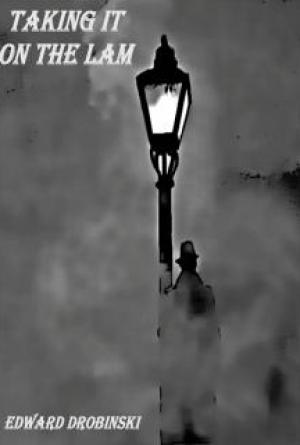Epilogue
March, 1947
The British provided cars to drive all of them to an RAF airfield outside Hamburg. In the waiting area, Colling had a chance to go through his luggage. He found that Fullerton had returned his Luger and the ammunition, and all of Cousin Jerry’s papers. Even the forged passports and documents were in the suitcase. He had exactly thirty dollars left, and a few small zloty notes. He was considering asking Quarles for the replacement of his personal funds when the man handed him an envelope. Inside was $5,000. Quarles winked at him when Colling looked up from riffling through the currency.
Colling said goodbye to the Breitmanns, wishing them well. Hermann smiled slyly, telling him that the British had been good enough to return the bag of gold sovereigns that he had hidden in his wife’s suitcase, and when Colling’s eyebrows raised, laughed and asked him if he really believed that he had handed over all the Countess’ bequest to Inspector Zavek. He told Colling he had plans to open a garage in Berlin, in the American Zone, of course.
Colling also wished Elena Zaletski and her girls the best of luck in the United States, and Elena told him that they would never forget him. He did not know what to say in response, and could only watch in silence as they walked out to the C-47 that would take them to London.
Elizabeth was assigned to the same plane as the Zaletski family. Before following them onto the plane, she took Colling in her arms and kissed him passionately. Then she whispered in his ear, “Please understand, Jim. I promise we’ll see each other again. Trust me.”
Quarles indicated he would stay behind to make sure that the Boroszkis would be protected until they were able to travel to the United States. Colling would take a flight into Munich, where Quarles had alerted the Military Police to ignore Sergeant Colling so that he could voluntarily report in at the 511th General Hospital.
Colling had been allotted a place on the last Air Force C-47 to leave Hamburg that day. He tried to sleep during the flight, but the noise and vibration made that impossible.
He took a taxi from the Munich airport to the railway station. He was surprised that when he turned over the check stub that he had kept concealed under the insole of his shoe, his B-4 bag was returned to him. His uniform smelled musty, and after he had shaken it out and put it on, it fit him more loosely that it had in the fall, a sign of how much weight he must have lost.
Once in uniform, he was able to catch a ride in a jeep with a corporal who said he would be passing the hospital on his way to perform some errand, and within minutes, Colling was walking through the ornate black iron gates of the 511th General Hospital. He acted as if his arrival was routine, not stopping to check in at the guard post.
Colling followed the signs in the building’s corridors and found his way to the door marked “Hospital Headquarters.” A tech-5 was manning the desk in the outer office, and Colling gave him his name and informed him he was reporting in. Colling was asked to wait, and he stood in the “at ease” position until he was told to come into the inner office.
Colling had snapped to attention and saluted before he recognized the figure seated behind the desk. Major Vincent looked up and smiled at him, “Well, Collings, I see you have decided to rejoin us.” To the tech-5, Vincent added, “Corporal, call the Provost Marshal’s office and tell them we have a deserter for the stockade.”
Author’s Postscript
Those readers who are familiar with the Order of Battle of the U.S. Army in World War II will undoubtedly recognize that there was no 61st Division that actively served in the European Theater of Operations, nor has there ever been an infantry regiment designated as the 40th in the Army organizational tables. The 61st was a “Ghost” division that was proposed to be organized, but dropped from consideration in 1943 due to financial and manpower limitations.
The author’s 61st is modeled after the 71st Division, which was actually formed from “orphan” Regular Army infantry regiments, and served with distinction in the closing months of the war. The 71st , nick-named the “Red Circle” division because of the red circle that enclosed the divisional number on its unit shoulder patches, was considered a “Regular Army” division, resulting in its remaining part of the occupation forces in Germany until well into 1946. Many of the events recounted in Dog Robber were drawn directly from the pages of the 71st Division newspaper, the Red Circle Times, published in postwar Germany.
The military and political policies and events described are part of the historical record, no matter that they have generally been forgotten by all but historians specializing in the post-World War II era in Europe.
Jim Colling has quite a few months left in his enlistment, and will undoubtedly find himself called upon to engage in further adventures.
###
~ Enjoy the complete Jim Colling Adventure Series ~
Rat Line
Ram’s Horn
White Eagle
Mountain Tiger
Now available for just $2.99 each







